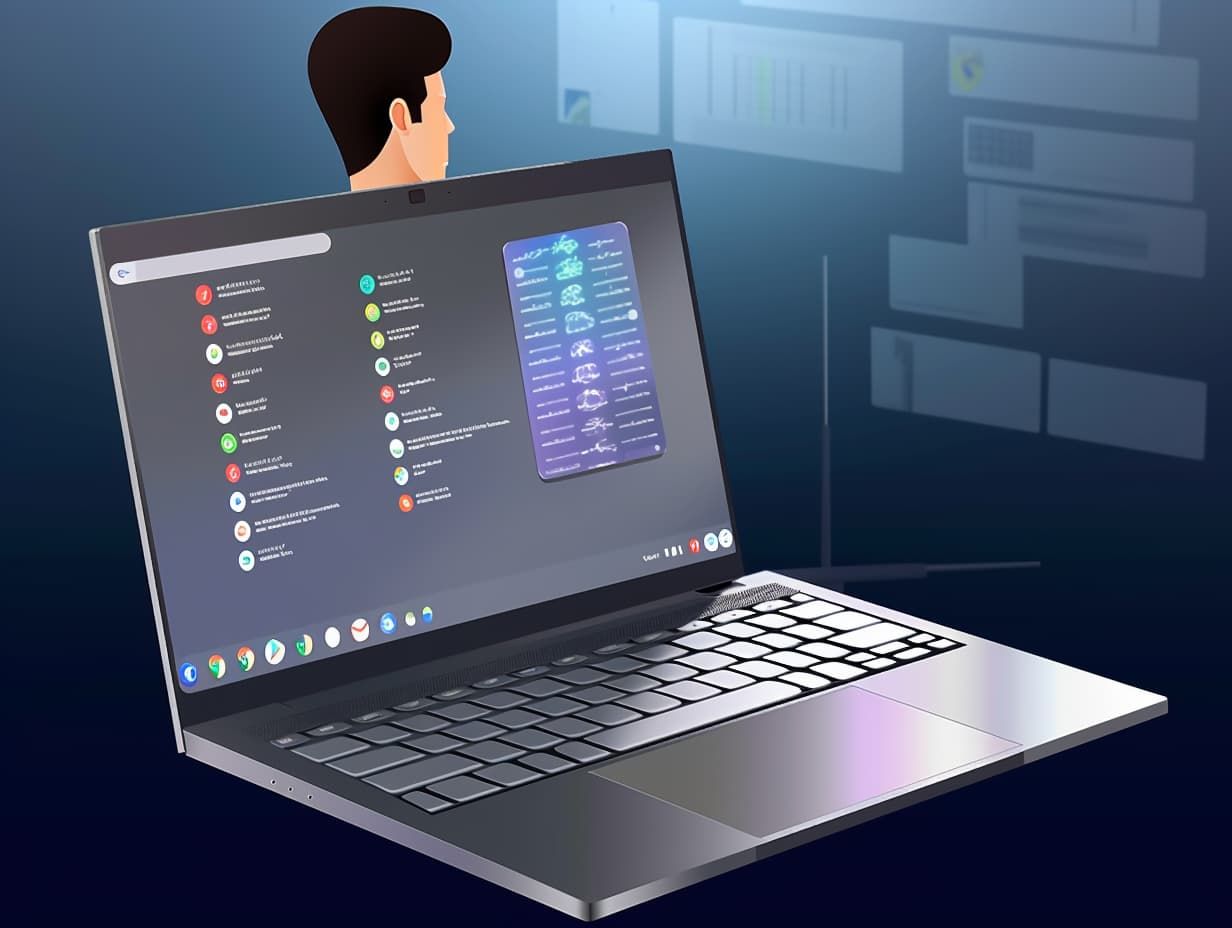
Is the HP Chromebook x360 14c the Ultimate Laptop for Software Developers?
Introduction to the HP Chromebook x360 14c
The HP Chromebook x360 14c is a versatile and powerful convertible laptop with a 14-inch 1920 x 1200 pixel touchscreen display, Intel Core i3 processor, 8GB of RAM, and 128GB of SSD storage. Its sleek design, impressive performance, and compatibility with Chrome OS make it an attractive option for software developers looking for a reliable and efficient development environment.

Key Features and Specifications for Developers
The HP Chromebook x360 14c offers several features that are beneficial for software developers, such as an Intel Core i3 processor, 8GB of LPDDR4x-4266 memory, and 128GB of solid-state storage, ensuring smooth multitasking and quick access to files. Additionally, the laptop supports WiFi 6E and Bluetooth 5.3, enabling seamless connectivity. Other features include a backlit keyboard, fingerprint reader, 5MP webcam with privacy shutter, and B&O audio for an enhanced user experience.
| Specification | Details | | Operating System | Chrome OS | | Processor | Intel Core i3-1215U (12th-gen) | | Graphics | Integrated Intel UHD Graphics | | Display | 14" FHD (1920x1200), Touchscreen | | Memory | 8GB LPDDR4x-4266 | | Storage | 128GB PCIe NVMe SSD | | Wireless Technology | Wi-Fi 6E, Bluetooth 5.3 | | Battery Life | Up to 10 hours and 45 minutes | | Ports | 2x USB-C, 1x USB-A, microSD, 3.5mm | | Webcam | 5MP, Privacy Shutter | | Audio | B&O Stereo Speakers | | Keyboard | Backlit | | Fingerprint Reader | Yes | | Weight | 3.3 pounds | | Dimensions | 12.66 x 8.11 x 0.71 in | | Build | Silver Aluminum Body | | Price | $699 |
Performance and Compatibility with Development Tools
The Chromebook x360 14c's Intel Core i3-1215U processor is powerful enough to handle most development tasks, from coding to running virtual machines. Chrome OS is compatible with a wide range of development tools, including popular IDEs like Visual Studio Code, JetBrains IDEs, and Android Studio. With support for Linux applications, developers can also use the terminal, install additional packages, and work with languages like Python, Node.js, and Ruby.

Pros and Cons for Software Development
Pros:
- Lightweight and portable design makes it easy to carry.
- Chrome OS is fast, secure, and compatible with a wide range of development tools.
- Intel Core i3 processor provides adequate performance for most development tasks.
- Long battery life allows developers to work on the go without worrying about recharging.
Cons:
- 250-nit display brightness may be inadequate for some users, especially in brightly lit environments.
- Limited storage capacity of 128GB might not be sufficient for larger projects or multiple development environments.
- Chrome OS might not support certain software or tools that require Windows or macOS.
Conclusion: Is the HP Chromebook x360 14c Worth It for Developers?
The HP Chromebook x360 14c offers a reliable and efficient development environment for software developers, thanks to its powerful Intel Core i3 processor, compatibility with a wide range of development tools, and sleek design. However, some developers might find the limited storage capacity and compatibility limitations of Chrome OS a drawback, especially if they require specific tools or applications that are only available on Windows or macOS. Overall, the HP Chromebook x360 14c is an excellent choice for software developers who prioritize portability, security, and battery life, and can work within the Chrome OS ecosystem. It is best suited for web and mobile developers, as well as those who primarily use cloud-based tools or can adapt to the Chrome OS and Linux environments.
Further Reading